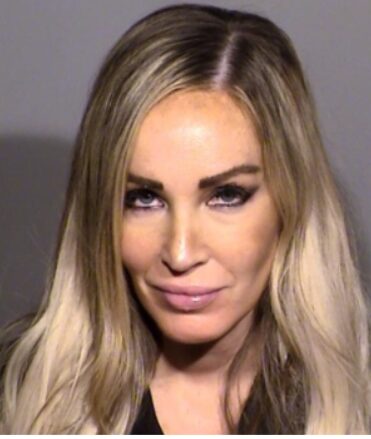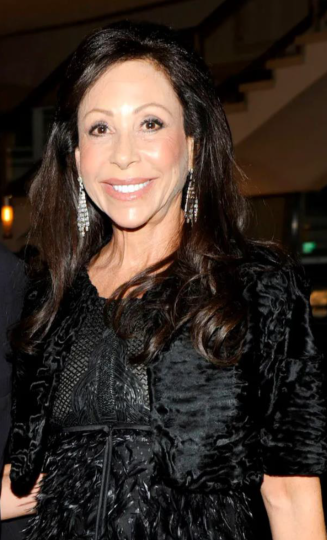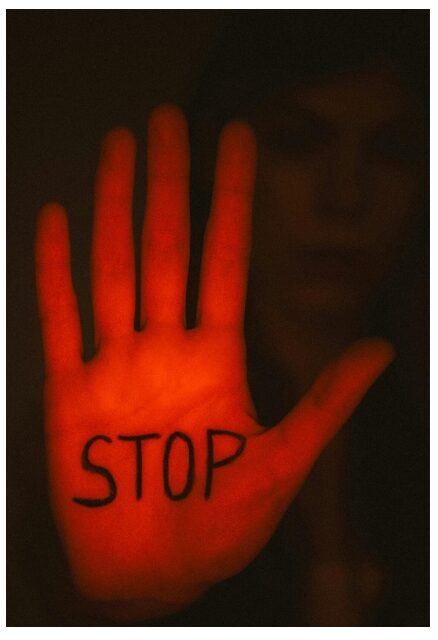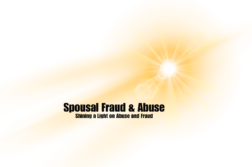Relationship Fraud & Spousal Abuse
The Hidden Threat Beyond Marriage
Relationships should be built on trust, respect, and emotional connection. Unfortunately, for many, these bonds are manipulated and exploited for personal, financial, or psychological gain. Relationship fraud—whether through romance scams, marital deception, coercive control, or spousal abuse—is a growing issue with devastating consequences for victims.
At Spousal Fraud & Abuse, we are committed to exposing the hidden realities of relationship fraud and spousal abuse by exploring high-profile cases and providing tools to help individuals recognize and prevent these betrayals. The cases of Jennifer Courtemanche, Marcia Levine, John Meehan, and Claudette Schwartz illustrate how deception and abuse can take many forms, affecting people from all walks of life.
Understanding Relationship Fraud & Spousal Abuse
Relationship fraud and spousal abuse often go hand in hand, with abusers using deception, control, and violence to exploit their partners. These fraudulent and abusive behaviors include:
- Marriage Fraud – Exploiting a spouse for financial gain, legal status, or other benefits.
- Romance Scams – Emotional manipulation via online relationships to extract money or sensitive information.
- Emotional and Financial Control – Creating dependency to manipulate victims for long-term personal advantage.
- Spousal Abuse – Physical, emotional, financial, and psychological harm inflicted within intimate relationships, often escalating over time.
These forms of deception and abuse thrive on manipulation, leaving victims emotionally devastated, financially ruined, and psychologically scarred. Many victims remain trapped in these harmful relationships due to fear, financial dependency, or coercive control.
What Is Spousal Abuse?
Spousal abuse refers to any form of physical, emotional, financial, or psychological harm inflicted by one partner on another within an intimate relationship. It is a pervasive issue that occurs in relationships where trust is expected and can affect individuals of all backgrounds, regardless of age, gender, or socioeconomic status. Common forms of spousal abuse include:
- Physical Abuse:
Acts of violence, including hitting, choking, pushing, or restraining a partner. Many victims suffer repeated assaults before seeking help, often due to fear of retaliation.
- Emotional Abuse:
Gaslighting, deceit, lying, and infidelity, as well as verbal assaults, threats, humiliation, and psychological manipulation used to erode a partner’s confidence and sense of reality.
- Financial Exploitation:
Controlling a partner’s finances, restricting access to money, or coercing financial decisions that benefit the abuser, often leaving the victim financially dependent and powerless.
- Sexual Abuse:
Forcing or coercing non-consensual sexual activity, including marital rape. Many victims of spousal abuse endure sexual violence but feel unable to report it due to fear or shame. Similarly, sexual abuse can be used to control the behavior of victims.
- Social Isolation:
Preventing a partner from seeing friends or family, limiting social interactions, or controlling communication to increase the victim’s dependence on the abuser.
Recognizing spousal abuse is critical, as victims often feel trapped due to financial dependence, emotional manipulation, or threats of violence. Many abusers use coercive tactics to maintain control, making it difficult for victims to seek help or even recognize the severity of their situation.
Notable Cases of Relationship Fraud & Spousal Abuse
Jennifer Courtemanche & the Exploitation of Gavin Maloof
Jennifer Courtemanche allegedly exploited her romantic relationship with businessman and former Sacramento Kings owner Gavin Maloof for personal and financial gain. According to reports, Courtemanche engaged in deceptive practices to access Maloof’s wealth, using emotional manipulation to gain his trust while allegedly mismanaging his funds and making false financial promises.
This case highlights how even individuals with substantial business acumen and financial resources can fall victim to fraud when emotional bonds are used as leverage. However, relationship fraud doesn’t only involve financial exploitation—many victims also endure emotional abuse, manipulation, and coercive control.


Marcia Levine & the Alleged Manipulation and Abuse of Pierre Levai
New York City art dealer Pierre Levai was allegedly subjected to severe manipulation and financial exploitation at the hands of Marcia Levine, a long-time companion and beneficiary of his trust.
Legal filings claim Levine kept Levai sick, starved, and physically incapacitated to control his assets and finances. She is further accused of concealing his medical condition from his family and isolating him to maintain control—hallmarks of both financial and emotional abuse.
Levai’s case underscores how spousal abuse can go beyond physical violence, often involving long-term psychological manipulation and financial coercion that leaves victims isolated and powerless.
Claudette Schwartz: A Pattern of Deception and Spousal Abuse
The case of Claudette Schwartz (also known by various aliases including Claudette Spinelli, Claudette Rickett, and Claudette Rickett Schwartz) is a striking example of long-term relationship fraud and spousal abuse.
Allegations of financial manipulation, physical abuse, and neglect surfaced during her second marriage to Mr. Schwartz, particularly during his battle with cancer. Reports claim that after abandoning her husband in the hospital during a CAR-T treatment, his last hope for survival, she engaged in other relationships. When her husband actually survived and returned to their home, she administered high doses of THC to subdue him and isolated him from loved ones. She continued to siphon his financial assets, diverting those to her property telling employees not to tell her husband of a secret condominium she purchased. . This level of control and coercion mirrors the experiences of many spousal abuse victims, where abusers use substance control, financial restrictions, and isolation as tools of domination.
Her history of manipulation, however, began years earlier during her first marriage to Mr. Rickett, where court documents exposed a pattern of physical abuse, destruction of property, and financial irresponsibility. Despite warnings from her past, her actions continued unchecked into her subsequent marriage.
Claudette’s case demonstrates how unchecked patterns of spousal abuse—whether physical, financial, or psychological—can escalate over time, leaving victims trapped in toxic and dangerous relationships. It also illustrates how these predators can serially manipulate to exploit their victims.


John Meehan: The Master Manipulator & Abuser
Infamously known as “Dirty John,” John Meehan was a master of deception who built his life around exploiting vulnerable women through charm, lies, and manipulation.
Meehan often posed as a successful doctor, weaving elaborate stories of trauma and hardship to gain sympathy and trust. Once he embedded himself in his victims’ lives, he isolated them, gained control of their finances, and escalated into threats of violence.
His most notorious case involved Debra Newell, a successful businesswoman who became ensnared in his lies. Despite multiple red flags raised by her family, Debra initially believed Meehan’s fabricated persona. The situation escalated dangerously into physical abuse and threats of murder, forcing Debra’s daughter to take matters into her own hands in self-defense.
Meehan’s case is a stark reminder of how relationship fraud and spousal abuse are deeply intertwined—often starting with emotional manipulation and deception before escalating into violence and control.
Recognizing the Red Flags of Relationship Fraud & Spousal Abuse
Understanding the warning signs of relationship fraud and spousal abuse is critical to preventing exploitation. Common red flags include:
- Financial Manipulation – Controlling a partner’s money, restricting access to finances, or coercing financial decisions.
- Isolation Tactics – Discouraging or outright preventing the victim from maintaining connections with friends and family.
- Escalating Control & Violence – Emotional manipulation that gradually escalates into physical threats or abuse.
- Inconsistent Stories & Deception – Gaps in personal history, lying about finances, or withholding critical information. This often causes victims to question their own abilities and memories, allowing perpetrators to further control their targets.
- Avoidance of Accountability – Deflecting questions, shifting blame, or using intimidation to silence concerns.


Protecting Yourself from Relationship Fraud & Spousal Abuse
While relationships should be built on trust, taking steps to protect yourself can help prevent exploitation and abuse:
- Verify Identities – Be cautious of individuals who seem overly secretive about their past.
- Establish Financial Boundaries – Maintain control over your finances and watch for red flags.
- Recognize Isolation Tactics – Stay connected to friends and family who can provide perspective.
- Seek Support – If you feel unsafe or manipulated, reach out to trusted professionals or domestic abuse organizations.
A Call to Awareness & Action
The stories of Jennifer Courtemanche, Marcia Levine, John Meehan, and Claudette Schwartz demonstrate the devastating consequences of relationship fraud and spousal abuse. By learning to recognize red flags, fostering open communication, and taking preventative measures, individuals can protect themselves from becoming victims.
If you suspect relationship fraud or spousal abuse, don’t wait to act. Your vigilance could save someone from emotional, financial, or physical devastation.
